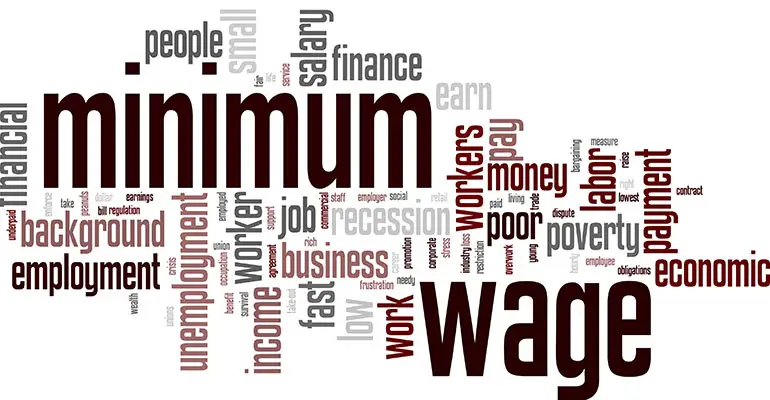Defying Deficits: A New Minimum Wage in the Age of Unemployment

Could an increase in pay lead to an upsurge in unemployment? Some economists still express concerns over minimum wage ripples that could rock American businesses and overall job creation.
However, there is a correlation gap between a minimum wage increase and its effects on unemployment – and it may be larger than many legislators might suggest. A minimum wage hike would more likely bring immediate financial relief for many middle class workers while acting as an economic stimulus for future generations.
Real Wages and Joblessness
The impact of wage change on unemployment rates is most frequently measured using the Phillips curve, which often suggested the correlation between a wage increase and joblessness among the workforce. However, it was later determined more effective to examine “real wages” rather than a flat wage increase when determining pay influence on unemployment.
A real wage, minimum or not, represents inflation-adjusted income and its impression on the values of goods and services. It is the relationship of real wages and their market worth that points exactly to how businesses compensate for minimum wage increases: by adjusting consumer prices.
A modern examination of a 10 percent minimum wage increase revealed that consumer goods prices rose by .4 percent during the hike – just enough for employers to compensate for the pay change without reducing the workforce.
It’s important to note that joblessness related to a required wage increase typically occurs when a company cannot financially accommodate the new minimum wage based on its current business model, which is often unlikely to occur.
The Impact of Wage Increases on American Businesses
There are a number of proposed ways American businesses can adapt to a minimum wage increase, including cutting the pay of high-salary workers or reducing the hours of low-income workers. The shock to employers is often minimal.
The Congressional Budget Office (CBO) disagrees, according to a report by the Washington Post. The CBO believes a federally mandated minimum wage of just $10.10 ($2.85 increase) could lead to layoffs, as well as reduced hiring. Although, the organization does note that the majority of workers would benefit from the increase – meaning most companies would need to make minor employment adjustments at worst.
In fact, many economists often downplay the positive effects of a minimum wage increase on businesses – among them: improved worker productivity. A new minimum wage – often a modest monetary increment for the top U.S. companies that employ low-wage workers – is a chance for many citizens to move beyond poverty. It is a value that returns trust to corporations, in turn, inspiring renewed work ethic in many underpaid laborers.
Why Renegotiate The Minimum Wage?
A new minimum wage generally benefits an entry-level workforce, including young workers and the poor. As the cost of college tuition rises, a manageable minimum wage supports postgraduates, as well as those who cannot afford education; both demographics are vital to a healthy economy. It is more likely that an increase in the minimum wage would help support their employment and economic impact on services and goods, not hinder it.
Currently, labor laws vary by state. While the federal minimum wage increase is on the table, many legislators are hard at work introducing regulations by state. If your employer violated your state’s minimum wage requirements during your employment term, then you may be entitled to compensation for lost income. Contact Wenzel, Fenton, Cabassa P.A. today for a free, confidential case evaluation.
Please Note: At the time this article was written, the information contained within it was current based on the prevailing law at the time. Laws and precedents are subject to change, so this information may not be up to date. Always speak with a law firm regarding any legal situation to get the most current information available.
Related Posts
Recent Posts
- False Claims Act Retaliation & Your Rights
- Fired for Being Pregnant? 5 Situations When You Should Call an Employment Lawyer
- Can My Boss Take My Tips? The Laws of Tip Ownership
- What Does “Meets FCRA Requirements” Mean?
- Can Your Employer Contact You While on Medical Leave? Know Your FMLA Rights in Florida
Contact Us

FREE HELP GUIDES
Dealing with unpaid wages, discrimination or wrongful termination? Get the information you need to protect your workplace rights. We offer employment law resources to help you fight for workplace justice.


